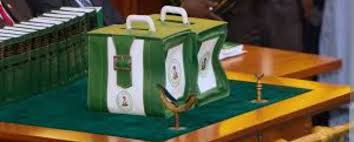The Coalition of United Political Parties (CUPP), yesterday, asked Nigerians to expect more economic stagnation from the 2025 Budget as the deficit component and debt servicing would still take substantial portion of the spending proposal.
National Secretary of CUPP, Chief Peter Ameh, who made the remarks, while reacting to the 2025 budget proposal presented by the President, Bola Tinubu to the National Assembly, described the new proposal as a recurring tale that had plagued Nigeria’s budgeting process for years.
Ameh noted that debt servicing will continue to drain the country’s resources and fuel poverty and hardship until the administration takes a clean break from the usual practice of borrowing to service the greed of the political elite.
The statement reads: “The 2025 Budget proposal presented by the President today is a stark reminder of the country’s persistent fiscal woes.
“A cursory examination of the line items reveals a familiar pattern: debt servicing continues to take a substantial chunk of the budget, while allocations for critical sectors such as healthcare, education, and infrastructure remain woefully inadequate. “This phenomenon is not new; rather, it is a recurring tale that has plagued Nigeria’s budgeting process for years.
“The implications of this trend are far-reaching and devastating. As debt servicing continues to drain the country’s resources, poverty levels have skyrocketed, and economic growth has stagnated.
“The human cost of this mismanagement is evident in the lack of access to basic necessities such as healthcare, education, and clean water. The failure to address these pressing needs has led to widespread disillusionment and frustration among Nigerians.
“To break the cycle of annual rituals, the government must adopt a more proactive and responsive approach to budgeting.
This includes involving civil society, the private sector, and citizens in the budgeting process to ensure that allocations reflect the country’s pressing needs.
“Performance-based budgeting, where funds are allocated based on performance indicators and project outcomes, can also help to ensure that resources are utilised efficiently.
“Furthermore, the government must address the issue of debt servicing, which continues to drain the country’s resources. Debt restructuring, revenue enhancement, and budget realignment are potential strategies that can help to alleviate this burden.”















